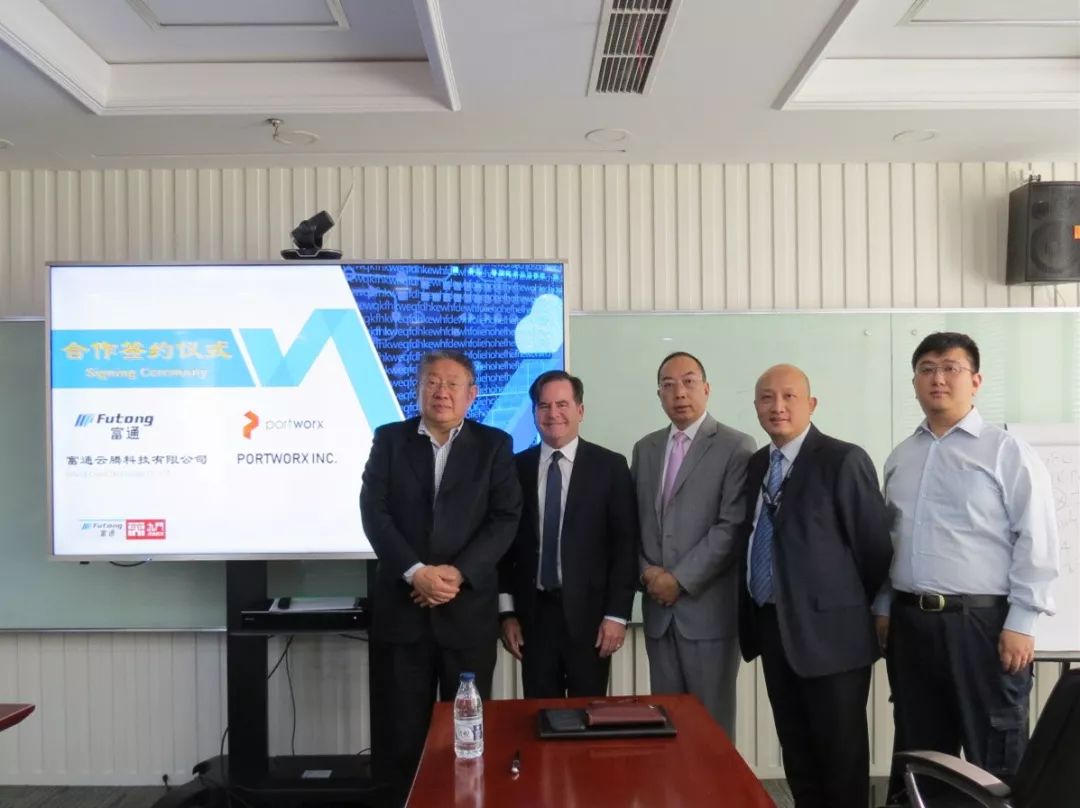This article is sourced from "51CTO"
From a traditional solution distributor to a digital transformation service provider, and from traditional IT services to cloud service practices, Futong Technology has been adjusting its development course with multiple identity transformations. Recently, a reporter from 51CTO interviewed Xu Zhixin, Vice President of Futong Technology's subsidiary Futong Cloud, for an in-depth discussion on the development of cloud management services.
51CTO: Futong Cloud's cloud computing business is a major focus of Futong Technology's transformation. Could you introduce the original intention of establishing Futong Cloud and its strategic role in the transformation process of Futong Technology?
Xu Zhixin: Futong Technology was established in 1996, and for more than 20 years, the company has experienced a transformation from an enterprise-level IT system distributor to an enterprise-level system integrator, and then to a service provider for enterprise digital transformation.
Our early distribution business allowed us to cover almost all industries in China. After going public on the Hong Kong main board in 2009, the company began to focus on industry sectors, transitioning towards the role of an enterprise-level system integrator and service provider. Around 2014, with the transformative upheaval in the entire IT industry, especially the technological impact brought about by emerging internet-based models, service providers at every level of the IT industry were significantly affected. Coupled with the increasingly urgent need for digital transformation from our front-end clients, we decided to transition towards cloud business.
Therefore, in 2014, the group established a wholly-owned subsidiary, Futong Cloud, to handle cloud MSP-related exclusive business, and independently developed a multi-cloud management platform, CloudoorManagement, and a private cloud construction platform, CloudoorSphere, to provide customers with more efficient and convenient full-stack cloud management services.
51CTO: Futong Cloud positions itself as a leading full-stack cloud management service provider (MSP) in China. How should we understand "full-stack"? What kinds of clouds can "cloud management" manage?
Xu Zhixin: Let's talk about "full-stack" first. From a technical perspective, it is a capability that encompasses a range of technical knowledge and the ability to solve problems at different levels.
Returning to our MSP services, "full-stack" refers to the coverage of the entire lifecycle of helping enterprises adopt cloud services, including initial consultation and planning, migration and deployment during the middle phase, and ongoing operation and maintenance, optimization, training, and other related aspects. On the basis of helping users quickly establish a cloud technology system, we assist users in smoothly migrating local applications to cloud platforms and provide operational and maintenance management support for users' cloud application environments, thereby improving the availability of cloud platforms and optimizing the cost of cloud operations.
There is a common metaphor in the industry that moving an enterprise to the cloud is akin to moving from a private villa to a public rental apartment. When people generally mention MSP services, they think of it as hourly worker services procured after moving, including cleaning, cooking, car washing, etc., which actually limits the understanding of MSP services to operational services. Full-stack MSP services also include "planning" - previously living in a villa with five rooms, now living in a public rental apartment with three rooms; "migration" - moving services, categorizing and packing various items, and using professional tools for relocation; "operation and maintenance" - using various equipment for daily management, such as vacuum cleaners for cleaning and floor scrubbers for washing floors, etc. In other words, whether an enterprise is moving to a public cloud or implementing a private cloud, full-stack MSP services will seamlessly cover every aspect of the transformation of the enterprise's system architecture.
"Cloud management" refers to the oversight and management of cloud computing products, services, and infrastructure across public and private, hybrid, and multi-cloud environments. Futong Cloud's multi-cloud management platform, CloudoorManagement, is capable of managing various types of cloud resources. This includes mainstream public clouds such as AWS, Oracle, Alibaba Cloud, Huawei Cloud, Tencent Cloud, Ucloud, and QingCloud, as well as private clouds like OpenStack, VMware, CloudStack, and their own CloudoorSphere, along with physical servers, network devices, and storage devices.
51CTO: Besides managing various cloud resources, what other support can Futong Cloud's multi-cloud management platform provide?
Xu Zhixin: Before answering this question, I'd like to add that we are seeing more and more enterprises choosing to deploy their systems and businesses in multi-cloud environments. There are three reasons behind this: First, because each cloud has different characteristics, enterprises will inevitably choose different clouds based on various needs to ensure that their business runs on the most suitable platform; second, enterprises need to ensure that their business systems can operate on any cloud at any time and can flexibly migrate between cloud platforms; third, relying on a single cloud will inevitably lead to vendor lock-in, resulting in increased operational costs. Therefore, whether from a business security or data security perspective, multiple cloud platforms are needed to support the operation of business systems.
Once enterprises recognize this, problems arise: the difficulty of cross-cloud system migration, non-unified management platforms, and the challenge of monitoring dispersed businesses are external issues. Internally, there are challenges such as insufficient technical reserves, lack of management experience, and operational costs that not only fail to decrease but actually increase. In this context, the value of MSP service providers becomes increasingly prominent. This brings us to our multi-cloud management platform, CloudoorManagement.
In addition to managing various cloud resources, our multi-cloud management platform can further help clients make the most of cloud services and control cloud costs. In fact, for clients, adopting cloud computing is not just about using cloud resources; ultimately, they need to support cloud applications on the cloud platform. Therefore, the key to Futong Cloud's multi-cloud management platform services also lies in the development, testing, deployment, and operation of cloud applications. Additionally, when enterprises heavily utilize cloud platforms, especially public clouds, the probability of resource waste by business teams increases significantly due to the "unlimited" resources provided on a pay-as-you-go basis, creating the "illusion" that operational costs are not decreasing but increasing. To address cost control, our cloud management tools offer features such as cost analysis, visual display, cost forecasting, cost optimization, and report output. By combining these means with cost optimization recommendations, we help enterprises manage their cloud costs effectively.
We have put a lot of effort into the 'billing management' feature. Why do I say that? Because Chinese enterprises pay special attention to the billing function, especially when it comes to public clouds, particularly when using multiple international public cloud brands. The more brands you use, the more difficult it is to understand the bills, as they are presented in a dimension that is hard for non-technical personnel to grasp. Therefore, our billing management involves re-extracting and formatting the bills, allowing enterprises not only to see in detail how much each cloud costs but also to customize additional features according to specific needs.
51CTO: Looking at the current overall market, the private cloud market is also continuing to grow, with different enterprises and different needs requiring different solutions. From your experience, what are the main drivers for enterprises to build private clouds? What is Futong Cloud's private cloud product like?
Xu Zhixin: Based on the clients we have served in the past, enterprises mainly consider two points when building private clouds: the need to gradually adopt cloud services and the need to maintain the operation of existing legacy business systems.
Some enterprises choose private clouds as the first step in their cloud adoption process. For example, the government cloud systems we have built for some government departments may not be under significant pressure, but choosing to deploy on private clouds is actually a complement to the corporate culture, making it easier for them to accept cloudization.
Some customers still have business operations running on their existing equipment during the cloud adoption process. Although this business is on a declining trend and will be phased out of the enterprise's layout, it still needs to be maintained in the short term. Enterprises do not want to migrate to the cloud and require that while continuing to use the underlying environment, they can maintain data consistency with the overall cloud system.
Our private cloud product supports OpenStack APIs, is fully compatible with AWS standard APIs, can interface with public clouds, has strong scalability, is easy to integrate with other systems, and has passed the Trusted Cloud certification by the China Academy of Information and Communications Technology, making it eligible for inclusion in the procurement catalog of central enterprises.
51CTO: In your opinion, what are the advantages and characteristics of Futong Cloud's products and services compared to those of its competitors?
Xu Zhixin: In today's multi-cloud environment, MSPs are in the ascendant phase of cloud market development, where MSP vendors compete based on technology, products, and enterprise-level service capabilities. The essence of Futong Cloud's cloud management tools, private cloud products, and the entire full-stack cloud management services is centered around "service".
Futong has been serving enterprises for many years and has deeply cultivated industry clients, having a better understanding of what Chinese enterprises need most and having sufficient anticipation and measures to deal with the complexities of enterprise technologies. With over 20 years of accumulated experience in enterprise-level IT services, I believe it's a barrier that is hard to surpass. Our attention to and service capabilities for the stability, efficiency, and security of enterprise business systems are more convincing than those of emerging internet companies.
Additionally, Futong Yunteng is a cloud Managed Service Provider (MSP) with coding capabilities. We make an effort to get closer to the front end of our customers' applications and delve deep into their scenarios. In response to our customers' needs for developing and deploying new business applications in the cloud environment, we are able to utilize technologies such as big data and AI to assist enterprises with secondary development, expand cloud capabilities, and ensure a seamless integration between front-end applications and back-end support, thereby fulfilling the true essence of customer hosting requirements.
51CTO: What types and industries of customers does Futong Yunteng currently serve?
Xu Zhixin: We have covered industries with high demand for cloud management services and rapid growth in investment benefits, including retail, manufacturing, healthcare, finance, transportation, technology, broadcasting, media, and education. China Unicom's Wo Cloud, Zhongguancun Belt and Road Industrial Promotion Association, Jilin Petroleum, and China International Television Corporation are all industry benchmark enterprises that we have served.
We have observed that with the continuous advancement of cloud computing technology and the increasing scenario-based application of cloud computing, enterprises that move to the cloud tend to focus their efforts on innovation and value-added aspects of their own business. They opt to engage cloud management service providers to coordinate these efforts, as the consensus among cloud-adopting enterprises grows that "professionals should do professional work."
Enterprise cloud adoption is a trend, and cloud talent is the key. Looking at the cloud MSP (Managed Service Provider) track, it is still a diverse competitive state where everyone does their best, and complementarity has not yet been distinguished. In the development of China's cloud computing today, cloud management service providers have become an indispensable backbone force in the cloud market.







